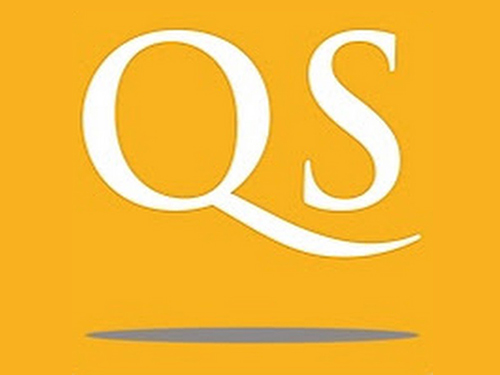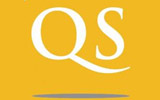QS+World+University+Ranking
-
 KAIST Ranked 40th in the QS World University Rankings
KAIST ranked 40th in the 2018 QS World University Rankings, one place higher than last year. According to the QS (Quacquarelli Symonds) World’s Top 100 universities released on June 7, KAIST is the second highest ranked Korean university among the five Korean universities listed, following Seoul National University which ranked 36th.
KAIST displayed outstanding performance by ranking 16th in citations per faculty. In the 2018 rankings, universities that are strong in science, technology, and engineering claimed some of the highest positions. MIT topped the list and Caltech took fourth, ETH Zurich seventh, followed by Imperial College London which took eighth.
According to the analysis compiled by QS, universities focusing on science and technology are dominating the global universities rankings. This tendency comes from the fact that engineering schools have an advantage when evaluating the quality of research according to the number of citations per faculty member.
Provost O Ok Park predicts that science and technology will be key players in the Fourth Industrial Revolution era. “In the coming years, universities that excel in multi and interdisciplinary research will lead future growth. KAIST also continues to focus on transdisciplinary education and research,” he said.
2018.06.07 View 5371
KAIST Ranked 40th in the QS World University Rankings
KAIST ranked 40th in the 2018 QS World University Rankings, one place higher than last year. According to the QS (Quacquarelli Symonds) World’s Top 100 universities released on June 7, KAIST is the second highest ranked Korean university among the five Korean universities listed, following Seoul National University which ranked 36th.
KAIST displayed outstanding performance by ranking 16th in citations per faculty. In the 2018 rankings, universities that are strong in science, technology, and engineering claimed some of the highest positions. MIT topped the list and Caltech took fourth, ETH Zurich seventh, followed by Imperial College London which took eighth.
According to the analysis compiled by QS, universities focusing on science and technology are dominating the global universities rankings. This tendency comes from the fact that engineering schools have an advantage when evaluating the quality of research according to the number of citations per faculty member.
Provost O Ok Park predicts that science and technology will be key players in the Fourth Industrial Revolution era. “In the coming years, universities that excel in multi and interdisciplinary research will lead future growth. KAIST also continues to focus on transdisciplinary education and research,” he said.
2018.06.07 View 5371 -
 KAIST Ranks 13th in Engineering and Technology and 43rd in Overall Ranking in the 2015 QS World University Rankings
For the first time, the university has broken into the ranks of top 50 global universities since the first release of the rankings in 2004. The 2015 QS World University Rankings were released on September 15, 2015. Overall, KAIST ranked 43rd, advancing eight steps up from last year’s results. Its engineering and technology rank now places it 13th in the global rankings, but it is first in Korea's rankings. Both represent the highest record KAIST has ever attained since the QS Rankings began in 2004. The QS Rankings uses six performance indicators to assess universities’ global reputation, research impact, staffing levels, and international complexion. The indicators are: academic reputation (40%), employer reputation (10%), student-to-faculty ratio (20%), number of citations per faculty publications (20%), international to domestic faculty ratio (5%), and international to domestic student ratio (5%). The Massachusetts Institute of Technology (MIT) topped the 2015 list, with Harvard University coming in second place. The University of Cambridge and Stanford University jointly ranked third. For details on the 2015 QS World University Rankings, see http://www.topuniversities.com/university-rankings-articles/world-university-rankings/qs-world-university-rankings-201516-out-now.
2015.09.17 View 5352
KAIST Ranks 13th in Engineering and Technology and 43rd in Overall Ranking in the 2015 QS World University Rankings
For the first time, the university has broken into the ranks of top 50 global universities since the first release of the rankings in 2004. The 2015 QS World University Rankings were released on September 15, 2015. Overall, KAIST ranked 43rd, advancing eight steps up from last year’s results. Its engineering and technology rank now places it 13th in the global rankings, but it is first in Korea's rankings. Both represent the highest record KAIST has ever attained since the QS Rankings began in 2004. The QS Rankings uses six performance indicators to assess universities’ global reputation, research impact, staffing levels, and international complexion. The indicators are: academic reputation (40%), employer reputation (10%), student-to-faculty ratio (20%), number of citations per faculty publications (20%), international to domestic faculty ratio (5%), and international to domestic student ratio (5%). The Massachusetts Institute of Technology (MIT) topped the 2015 list, with Harvard University coming in second place. The University of Cambridge and Stanford University jointly ranked third. For details on the 2015 QS World University Rankings, see http://www.topuniversities.com/university-rankings-articles/world-university-rankings/qs-world-university-rankings-201516-out-now.
2015.09.17 View 5352 -
 QS World University Rankings 2014: KAIST ranked 17th in Engineering and Technology
The QS World University Rankings 2014 were released on October 16, 2014. KAIST ranked 51st among the top 100 global universities which included Massachusetts Institute of Technology (MIT), University of Cambridge, Imperial College London, Harvard University, and University of Oxford. This year’s QS ranking is the highest record ever achieved by KAIST, a great leap from last year’s 60th.
KAIST’s forte in engineering and technology remains high, ranking 17th out of hundreds of universities around the world. Since 2004, KAIST has kept the number one place in this subject within Korea.
Since first being compiled in 2004, the QS rankings have expanded to feature more than 800 universities around the world, and the top 400 universities are given individual ranking positions. The rankings are compiled based on six indicators: academic reputation, employer reputation, faculty/student ratio, citations per faculty, international student ratio, and international staff ratio.
KAIST has earned high scores in three indicators: citations per faculty, academic reputation, and employer reputation.
President Steve Kang of KAIST said, “With concerted efforts made by all members of the KAIST community, faculty and students in particular, we have received a good result in the global rankings. Without dwelling on this result, we will continue to strive toward making KAIST one of the most sought-after universities in the world, academically praised and technologically innovative.”
2014.09.16 View 9482
QS World University Rankings 2014: KAIST ranked 17th in Engineering and Technology
The QS World University Rankings 2014 were released on October 16, 2014. KAIST ranked 51st among the top 100 global universities which included Massachusetts Institute of Technology (MIT), University of Cambridge, Imperial College London, Harvard University, and University of Oxford. This year’s QS ranking is the highest record ever achieved by KAIST, a great leap from last year’s 60th.
KAIST’s forte in engineering and technology remains high, ranking 17th out of hundreds of universities around the world. Since 2004, KAIST has kept the number one place in this subject within Korea.
Since first being compiled in 2004, the QS rankings have expanded to feature more than 800 universities around the world, and the top 400 universities are given individual ranking positions. The rankings are compiled based on six indicators: academic reputation, employer reputation, faculty/student ratio, citations per faculty, international student ratio, and international staff ratio.
KAIST has earned high scores in three indicators: citations per faculty, academic reputation, and employer reputation.
President Steve Kang of KAIST said, “With concerted efforts made by all members of the KAIST community, faculty and students in particular, we have received a good result in the global rankings. Without dwelling on this result, we will continue to strive toward making KAIST one of the most sought-after universities in the world, academically praised and technologically innovative.”
2014.09.16 View 9482